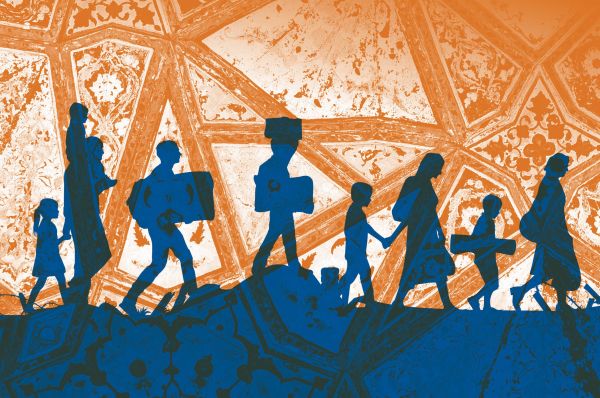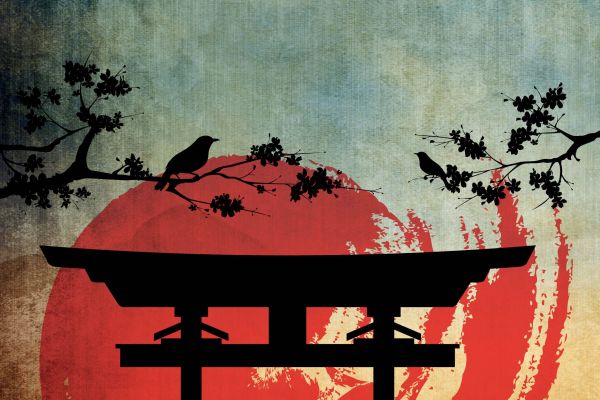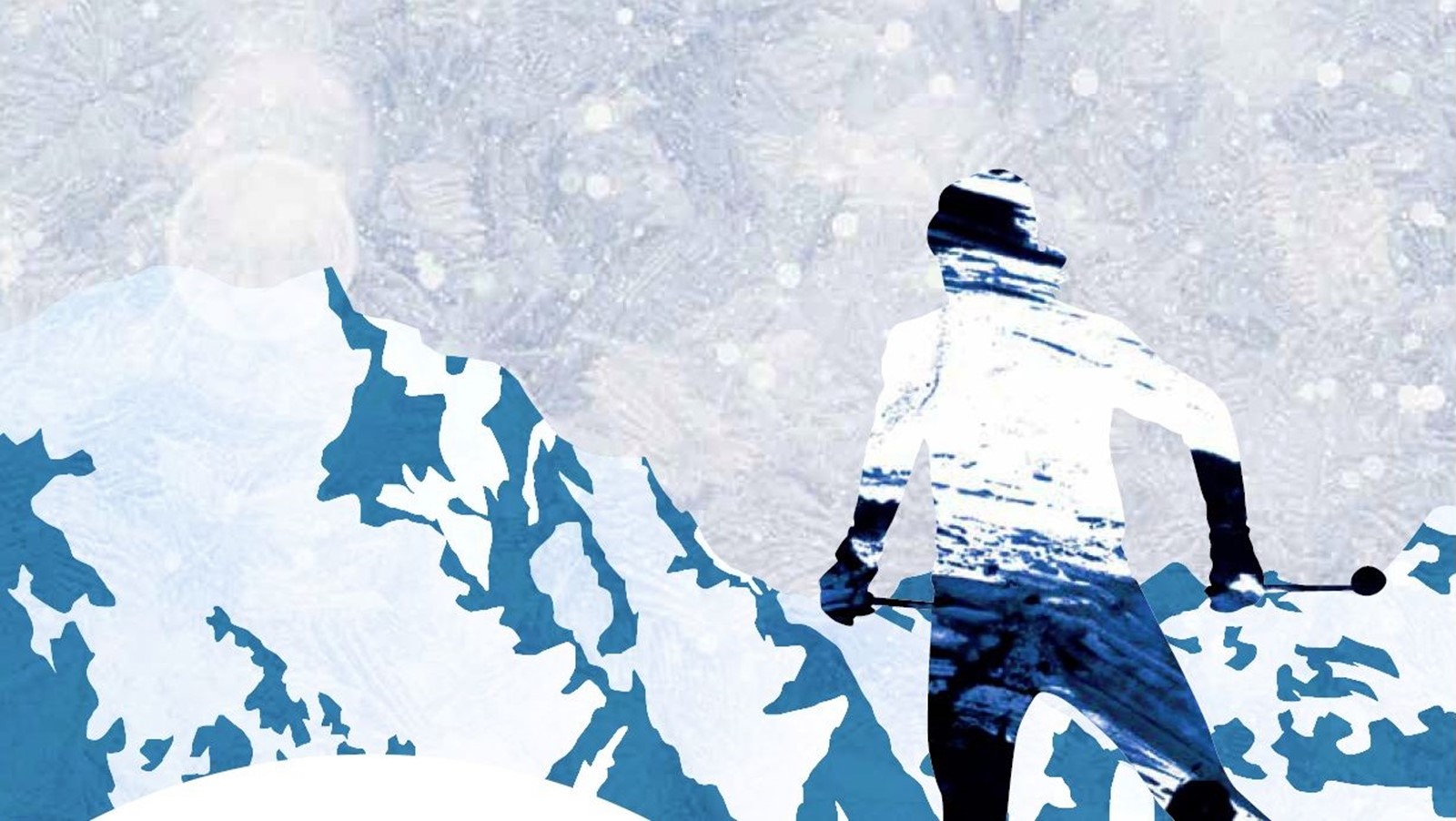The importance of research to counselling and psychotherapy is well established and a core element of professional practice.1 It enables the profession to be accountable for its practice and to demonstrate its effectiveness, all factors essential in a world where commissioning services frequently demand this. Research is an area I feel passionate about, having developed a deep interest during my experiences as a nurse.2 This article explores my undertaking of a doctoral study in counselling, including the learnings, joys and trials involved. The aim is to provide a personal account of the experience of doing such work, one that is often omitted in research texts.
Beginnings
The subject for my research developed during my initial counsellor training. It involved exploring a subject that was more personal than is often the case in research, that of looking at spirituality in psychodynamic practice. Not only did I feel that this was an important subject of study, but it was also a question that I personally needed to explore for my practice. Specifically my research explored psychodynamic counsellors’ understandings of and engagement with spirituality in practice.3,4
During my training I increasingly became aware of the atheistic roots of psychoanalytic and psychodynamic practice, and more importantly, of the way that this stance was seemingly accepted as ‘truth’, that all forms of religion were forms of defence and of infantile thinking.5,6 As a practising Christian, who was deeply involved in my local church at the time, this was challenging and I had a strong desire to try and make sense of the distance between my religious and spiritual beliefs and the theoretical world of psychodynamic practice. This dissonance propelled me to explore opportunities for PhD study. At this time, I was continuing my practice as a nurse, training student nurses and mentoring nurse lecturers. This produced its own tensions that I will explore later in this article.
Developing confidence
By coincidence, the department that I was studying in at the time of my enquiries had bursaries and was interviewing students for PhD study. However, my first contact about this was with a person who challenged me about doing a PhD, warned me of the struggles involved and encouraged me to think about writing a book instead! This person later became my supervisor, to whom I am very grateful and whose input and friendship I have deeply valued, but at the time I felt a little confused. I sat with this for some time, prayed about it and still felt compelled to continue exploring this direction.
I was very struck by the synchronicity: the timing of my enquiries and the interviews for PhD bursaries; was this a prod to continue seeking the PhD route? So my next encounter at the university proved more positive and I was soon accepted for part-time doctoral study.
Despite initial concerns about embarking on this form of study alongside developing my counselling practice, and working as a nurse, I felt very contained and supported by the university. I had to follow a two-year postgraduate research training programme, undertaken by all PhD students. This was hugely enriching, enabling me to update my broader understanding of research, to network and to develop my research questions. However, as the second year of this programme was in its final term, I received unwelcome and unexpected news.
A challenging period
Seemingly out of nowhere, I was informed that the department that I was studying in was to be closed as part of a large-scale cost-cutting exercise. I was by this time engaged in developing my research and valuing this process. The management of information during this time was as good as it could be and I was fortunate in that I was told that the university would honour the bursary that it had given me. As would be expected, this was a very unsettling time. However, again, a sense of synchronicity emerged, this time in my transition to another university.
First, my supervisor got a job in my home town at Oxford Brookes University. Second, the academic consultant and general supporter of my work got a job at Oxford University. And third, a further supervisor, required by Oxford Brookes University, emerged, who provided an essential and complementary addition to the research. So, although this was unsettling, there was a sense of what I saw as God in this, in providing me with not only the exact support that I needed for the work, but also inasmuch as it was geographically much easier. This transition to Oxford enabled me to obtain ethical approval quickly and to begin data collection. I trialled an innovative method of journaling prior to narrative
interviewing and this proved fruitful in terms of generating good data. Equally, it felt straightforward in terms of accessing a range of participants for the study.
Up to this point, I had a sense of being in the right place, following what was laid out for me, trusting my anxieties in the process through knowing I was well supported. I valued the space to study, to be on my own searching and thinking about subjects that I was deeply passionate about. However, I did not know of the spiritual and academic trials that were ahead.
The challenge really begins
Although I enjoyed engaging with multiple sources of information and thoughts, after a while I became saturated with ideas; I found it difficult thinking about diverse spiritual, religious and academic ideas all together. The initial euphoria of doing the work had dissipated and the reality of the size of the task and a sense of a hard slog began to emerge; a not uncommon experience when studying for a PhD.7,8 This tested me on multiple levels: personally, spiritually and academically.
On a personal level, I was struggling with issues of identity and role transition – did I need to let go of my nursing work to fully take on the identity of counsellor? How could I make time for studying among my paid work demands? (Although I had a bursary, this didn’t provide income for doing the work.) What was my role in relation to my children and partner? My children were moving towards independent living, but still required support. Perhaps unsurprisingly, four years into the work, I developed an illness, requiring me to suspend my research for a year. While this felt devastating at the time, in retrospect it provided essential review time, for a regrouping, and time away from the work, to reflect on it; all of which culminated in a reaffirmation of my desire to do this work.
Similarly, on a spiritual level, I questioned my beliefs. More specifically, what did I understand as ‘spirituality’? Did it involve God? If so, what form did this take? Was my understanding of God my imagination, a projection or defended thinking? I wanted to understand the relationship between spirituality and religion. I questioned my religious beliefs profoundly. Membership at my church was not possible at this time. This felt a loss, since this was a community I was embedded in and greatly valued. I felt unsure, doubting my pre-existing beliefs but having no shape or form for what might replace them.
Inevitably this impacted on my academic progress: I became very stuck. I felt that I could make little sense of either the literature that I was engaging with or the data that I had by this time collected. I felt almost swamped by my data and the numerous narratives from the participants in my study.
In retrospect, I can see how there were parallel processes happening in my personal, spiritual and professional life, with the experience of questioning, unknowing and doubting in them all. Needless to say, I couldn’t see that at the time – I felt quite isolated and unsure. My supervisors were very supportive and understood, to some extent, what was happening, but only I could make this part of the journey. Over time, I recognised the need for several ongoing forms of support, which included working with a Jungian therapist, a spiritual director, helpful reading, talking with supportive friends and learning to sit with unknowing.
On a personal level, I worked with a Jungian therapist, the person who had accompanied me during my training as a counsellor and so knew me. This was a safe place, one to explore the personal factors impacting on me, including what from my past was playing into the present sense of confusion and unknowing. Like my participants in the study, I undertook journaling at this time. This was helpful both in terms of catharsis and of sense-making. Working with this therapist enabled me to remove projections, explore old thinking patterns and critical internal objects, and move towards understanding an emerging sense of myself.
In addition, working with a spiritual director provided a space to honestly explore the conflicts between my past spiritual beliefs and newly emerging thoughts and experiences. I was enabled to explore questions such as, how did I know if my emerging spiritual experiences were ‘real’ or mine? Did they fit with a form of Christianity that I could relate to? If so, how? How could I engage authentically with my sense of spirituality? My spiritual director provided a space to empathetically hear my experiences, tenderly hold my difficult and conflicting thoughts and to question them when appropriate. I valued the emphasis on not rushing this and enabling my spiritual journey to unfold.
During this time, I also found several academic papers and books helpful, particularly those that emphasised the struggle involved in doing research8 and the necessity of holding unknowing and ambiguity when analysing qualitative data.9,10 This reading provided a sense of solidarity, liberation and of normalising what I was engaged in. I remember reading McLeod, who described qualitative research as a process of ambiguity, uncertainty and of experiencing the unknowability of things.10 These words felt to me as though he was talking about my research and spiritual journey. And so, external recognition of the challenging process of postgraduate research, together with the understanding that this is an important part of the research process and of generating new knowledge, proved grounding for me during this time. Use of metaphor on a day-to-day basis was also pivotal, particularly when progress in my data analysis and writing felt slow or non-existent. I am a cross-country skier and the image (and experience) that I used was of skiing through a heavy snowstorm where the way ahead is unclear but knowing that I just have to keep going in order to eventually find my way and reach my destination. This metaphor was apt, it was living experience and proved helpful for me.
Meeting with a range of supportive friends was also key during this time. Some I talked to about my research as peer researchers, some I talked to about my fears and concerns in the process, and some I deliberately didn’t talk to about anything to do with my research and spirituality, but who provided much needed forms of distraction. I felt very held by these friendships. They gave me space to be who I was and allow and encourage my thinking to develop. Alongside this, they also provided challenge, which I greatly valued, in a space that felt both critical and safe.
Trusting the journey
These forms of support enabled me to sense the necessary journey of unknowing in the research process. Although I felt that I had very unformed spiritual beliefs, that my sense of self felt in transition and that I was unclear about my research, making little sense of my data, this became more manageable to hold. I felt a transition to valuing the struggle of not knowing in multiple domains. Although not easy or smooth, I began to trust that this journey of struggle and unknowing was important for its own sake. I had a sense of increasing ease in sitting with questions of what I believed, what the data were saying, who I was in this process. Gradually, I experienced a sense of no return in my research journey – whatever the outcome, I was engaged in a process that had to be worked through, I was committed to it and I valued it. This created a sense of incubation, leading to the enablement of critical thinking, experiencing, analysis and interpretation.
This sense continued in the process of analysing and writing up my work. This part of the process was tough in that I had six years of work in total to pull together. Issues included what to include/exclude, holding my voice in my writing and deciding what was enough and good enough. My supervisors were crucial in this process, as was my increasing resilience in receiving critical feedback so that I could receive their thoughts and help.
Holding a sense of unknowing, yet trusting, was vividly experienced and epitomised in my viva experience. I clearly remember a sense of waking on the morning of my viva exam with a deep sense of peace, of not knowing the outcome but of deeply trusting the process – whatever the outcome. This may be hard to believe, but the peace and trust that I experienced that day were life changing for me in the sense of knowing I had done all that I could and that that was enough. I felt truly thankful for the research process and the journey that it had taken me on.
As will be obvious from this article, I did in fact ‘pass’ my viva – a process that I very much enjoyed, with my examiners encouraging a deep, thorough and engaged discussion of my work. So, as I come to the end of writing about my experience of engaging in research, I do not want to convey that somehow all is now clear and sorted. What I do have is an increased ability to sit with a sense of not knowing, both spiritually and personally. I know that life is a continuing journey and I need to think, revisit, engage and experience this to enable an ever-developing sense of my own thoughts and mind. Consequently, I have more confidence in sitting with different viewpoints and experiences. As a Christian, I feel I have developed a more relational aspect to my faith and an experiential sense of God, with an increased range and sense of language around this. Although we all know that the spiritual journey is one of struggle, my sense as a result of my research is that I trust more in the unknown and paradoxically feel more certain about this. It has been a much valued and appreciated experience.
Jill Buckeldee, PhD, MBACP, is a counsellor, supervisor and trainer. Jill works in various settings, including private practice and at a theological college and a hospice. She is particularly interested in the interplay between spirituality and counselling.
More from Thresholds

On the supportive role of Islam in working with refugees, asylum seekers and vulnerable migrants
Open article: Sushila Dhall reflects on her work with Muslim refugees. Thresholds, Summer 2017

Counselling with reiki - a road ahead?
Free article: Carolyne Hill takes us on a journey to Japan and explores the benefits of reiki in her counselling practice. Thresholds, Spring 2017

In praise of darkness
Open article: Effie Lunn reflects on the importance of darkness and the value of descent. Thresholds, Winter 2016
References
1. BACP. Ethical framework for the counselling professions. Lutterworth: British Association for Counselling and Psychotherapy; 2016.
2. Buckeldee J, McMahon R (eds). The research experience in nursing. London: Chapman and Hall; 1994.
3. Buckeldee J. Spirituality in psychodynamic counselling: an exploration of counsellors’ understanding of and engagement with spirituality in practice. Unpublished PhD. Oxford Brookes University; 2016.
4. Buckeldee J. Counsellors’ understanding of spirituality in psychodynamic counselling (in press).
5. Freud S. The future of an illusion. London: Hogarth Press; 1927.
6. Freud S. Civilisations and its discontents. London: Hogarth Press; 1930.
7. Phillips E, Pugh DS. How to get a PhD: a handbook for students and their supervisors (3rd edition). Buckingham: Open University Press; 2000.
8. Williams K. Completing your PhD. New York: Palgrave; 2011.
9. Holloway I, Freshwater D. Narrative research in nursing. Oxford: Blackwell Publishing; 2007.
10. McLeod J. Qualitative research in counselling and psychotherapy (2nd edition). London: Sage Publications; 2011.
